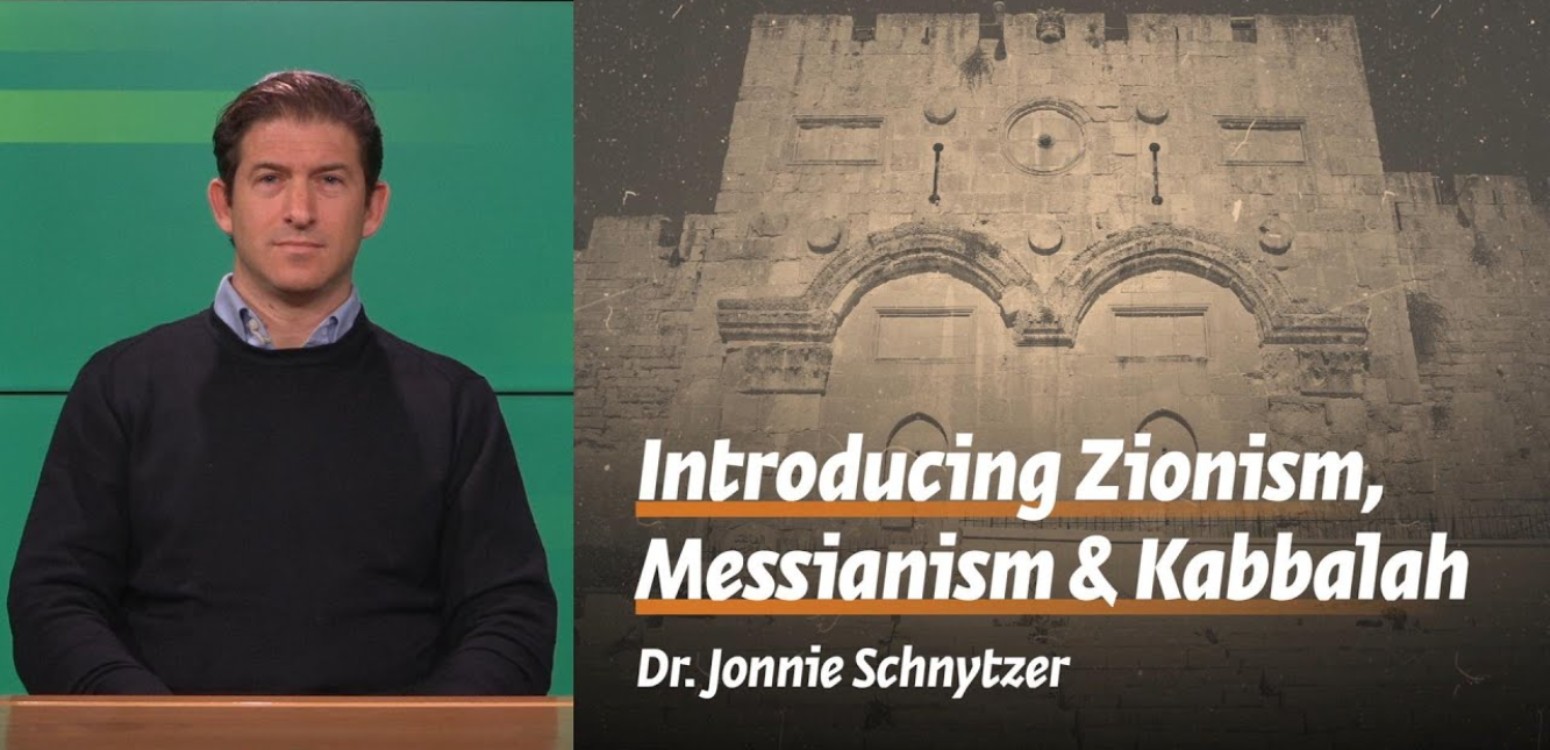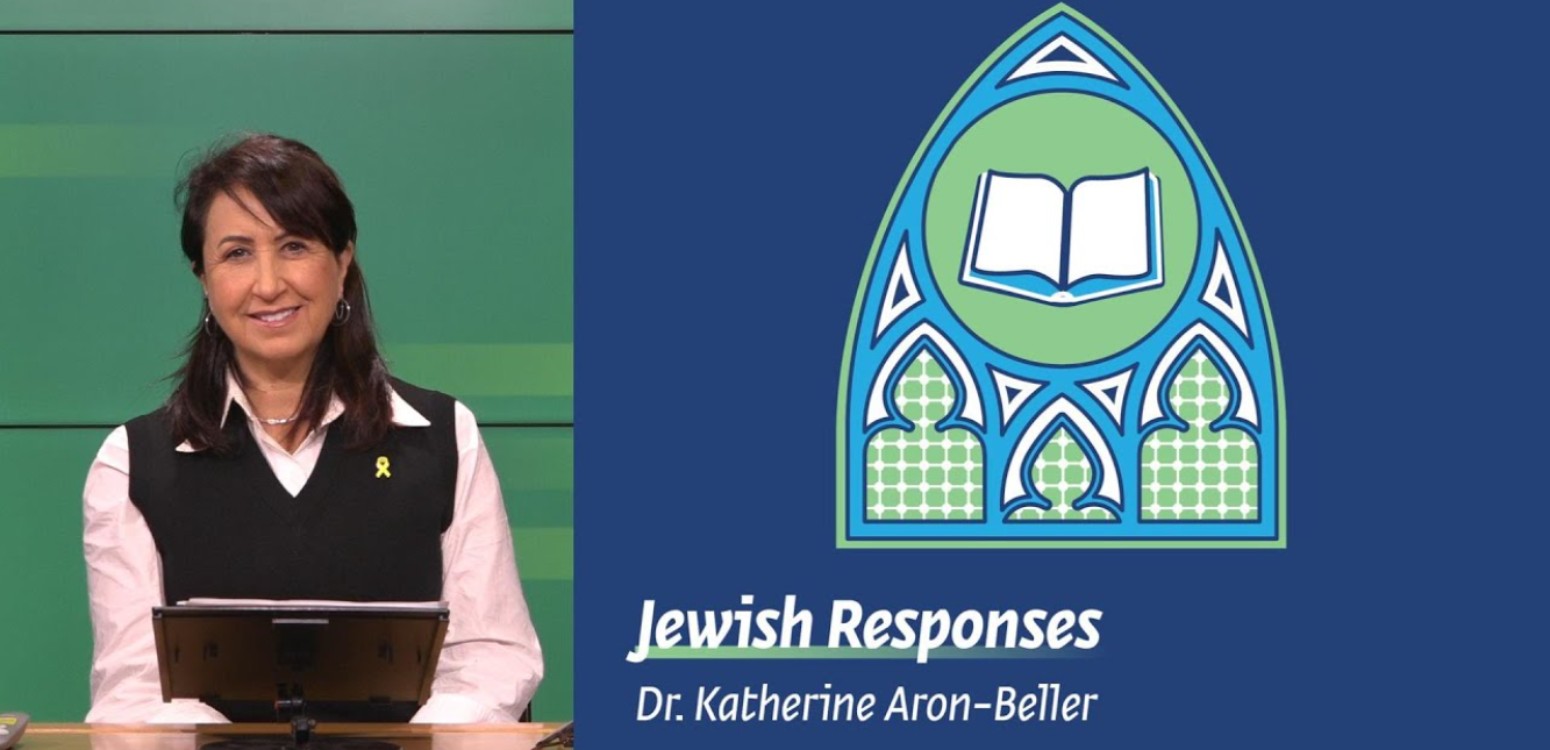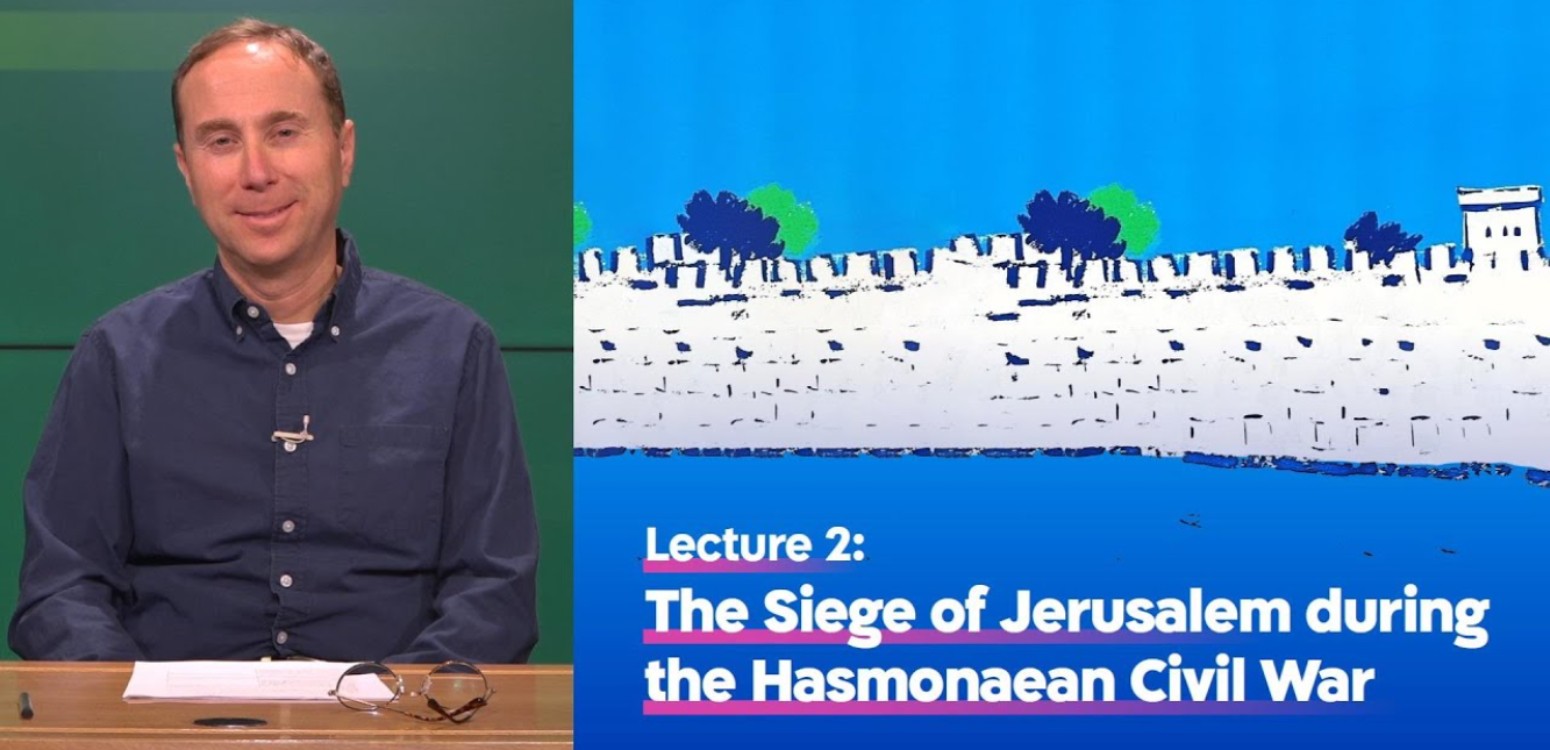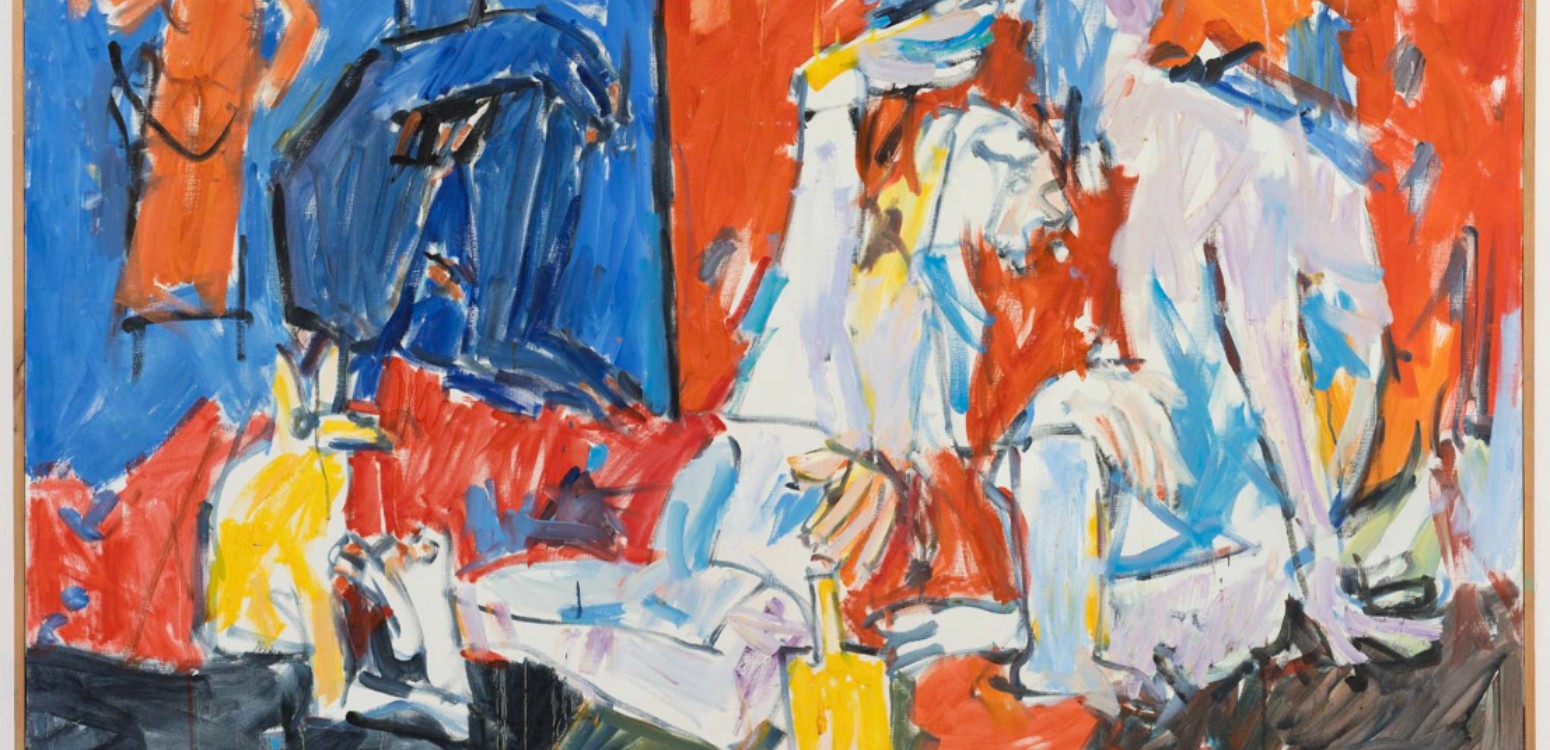Prof. Yeshayahu Leibowitz fearlessly addressed the most difficult questions of religion, Zionism, and the State of Israel. Leibowitz was a source of inspiration for many, and also irritated many, but to this day he remains an Israeli thinker who should not be ignored
Zev Harvey, Professor Emeritus of Jewish Thought at the Hebrew University of Jerusalem and the presenter of the new Beit Avi Chai online series “Yeshayahu Leibowitz's Audacious Israeli Philosophy”, first met Israel’s arguably greatest public intellectual in 1963, when the former was a visiting student at the Hebrew University.
“I was impressed by the amazing talks that he gave at Beit Hillel and various other places in Jerusalem,” Harvey recalls. “And one day on the bus I asked the historian Jacob Katz, ‘Who is this Yeshayahu Leibowitz? He’s amazing.’ And Professor Katz told me: ‘He’s a nihilist.’”
A nihilist? Leibowitz was one of the most devout people imaginable.
“In an essay from the early 1950s, Leibowitz wrote that ‘the difference between true faith and nihilism is very very thin, like the difference between the Garden of Eden and Hell’ (according to the midrash that says that there is just one tefach – one handbreadth – between them). That was his view from the beginning: He was almost a nihilist because he believed that true faith is the denial of everything else.
“Jean-Paul Sartre, the great French existentialist, said: if there is no God, everything is possible. That’s nihilism. And Leibowitz said: if there is a God, everything is possible. That is, if there is a God, there are no other values that are worth anything. True faith is an infinite value and it leaves no room for others.”
Did he actually phrase it this way, “if there is a God”?
“No, no, he didn't, he never used conditionals. I don't think he ever used the word ‘if’.”
Not just in relation to God.
“No. He was very declarative.”
Leibowitz was singular in many respects – as a philosopher, as a scientist, as a public intellectual. What do you think was the source of his greatness?
“He had tremendous encyclopedic knowledge. My late colleague Israel Ta-Shma who worked with him on the Hebrew Encyclopedia, of which Leibowitz was the editor, was most impressed by his tremendous pedagogical ability; he could explain things the way no other person could. Ta-Shma used to knock on the table and say: He could explain everything to this table. And this was done through an ability to present things in a clear yes-or-no manner. On the one hand, he was a very profound scientist. On the other, he was able to explain things in a simple, popular manner.”
Without dumbing down the very complex ideas that he was discussing?
“Slightly dumbing down. But still, there’s a difference between a brilliant genius who knows what he or she is talking about dumbing things down, and a normal person dumbing down. He, of course, knew what he was doing when simplifying things.
“He presented himself as someone who sees things very clearly, as opposed to Maimonides who on every issue would show all different positions. In “The Guide of the Perplexed”, for example, Maimonides gives you three or four or five different answers on every issue, and commentators debate what he really thinks, because Maimonides is always interested in showing the tensions between the different views. Leibowitz, although he was in a deep sense a Maimonidean, he was very different in his pedagogical approach. For him, it was important to make everything black and white.” 
Leibowitz is considered one of the greatest interpreters of Maimonides – how was this major difference between them reconciled?
“Leibowitz actually began as an anti-Maimonidean. From the beginning, he defined Judaism as the practical commandments, the mitzvot. What is Judaism for him? Judaism is doing certain actions. Judaism doesn’t have an official theology. Judaism had many different kinds of theologies – there are mystics and there are rationalist philosophers and there are Hassidim and Mitnagdim, and there are all kinds of ideas of faith. So with regard to thought, Jews have always had many different views, and conflicting views. The one thing that the Jews agree on is the actions. So, for example, everyone agrees that on Passover, we eat matzah and bitter herbs. But what does it mean to eat matzah and bitter herbs? Each family sits at the table and gives its explanation to what liberty is, what they think the important values of freedom are. Judaism doesn’t force you to have one view of what freedom is, but it does force you to eat the matzah and the bitter herbs. This, he said, is Judaism’s greatness: That it’s a religion of actions, not a religion of beliefs and dogmas. And he criticized Maimonides for basing Judaism on philosophy.
“But then, in 1952, Leo Strauss came to Israel for a sabbatical. Strauss was another one of the great interpreters of Maimonides, but he held that Maimonides was an atheist. He was also very good friends with Nehama Leibowitz [Yeshayahu’s sister and a renowned Bible scholar]. He believed that Maimonides was a philosopher who thought that Judaism had a political role to play, just like any religion in general has, but he didn’t believe in the principles of religion. This view completely staggered Leibowitz. He told Strauss: How can you possibly say that Maimonides was an atheist? That’s when he became a Maimonidean. At that time, he wrote an article called “Maimonides: The Abrahamic Man” in which he argued that Maimonides represents true faith and that Maimonides’ philosophy is just a way to get to true faith, which is the recognition that there is just one God. So his rejection of Leo Strauss turned him into a Maimonidean. And since then, Maimonides was at the center of his thought.
“Before the early 1950s, I think Leibowitz would define himself more as a Kantian than a Maimonidean, even though he always referred to Immanuel Kant as ‘The atheist Kant’, even though Kant saw himself as a very pious religious person. But because Kant defined religion in terms of ethics, Leibowitz considered him an atheist. Leibowitz used to say: What’s written in the Bible is not ‘thou shalt love thy neighbor as thyself,’ but ‘thou shalt love thy neighbor as thyself; I am your Lord.’ It’s a religious commandment to love thy neighbor because God is telling you to do it.” 
So how does Maimonides make his way into Leibowitz’s thinking? If he departs from this very anti-Maimonidean idea.
“Maimonides says in the beginning of Mishneh Torah that God is the absolute existent, meaning that God is truth and there’s nothing else but God. That feeds into Leibowitz’s idea about nihilism – that there is a God and there’s nothing else. So for him, Maimonides becomes the great man of faith. But you can see the change when he reprints his early essay. The original version that appeared in 1953 says: ‘My view that sees Judaism as practical mitzvot is a rejection of Maimonides’, and when it’s reprinted he changes ‘rejection’ to ‘reservation’.”
Was he ready to admit this radical change in his position despite being the very categorical person that he was?
“Yes, he was aware of it. This change with regard to Maimonides was unusually radical for him. Most of the differences in his positions were because of a change in the situation – for example, his attitude towards the State of Israel, before and after its creation, was different – but that was because there was an empirical change.”
How did that come about? After the state was created, he saw it merely as an instrument, right?
“He always saw it as an instrument. He always defined his Zionism, since childhood, as ‘we’re fed up with being ruled by gentiles’. What’s typical of Leibowitz, is that he’s always a minimalist. That is, he’s giving a minimalistic definition of Zionism that allows for social Zionism, for liberal Zionism, for religious Zionism, because they can all agree to the principle of being fed up. On the one hand, he phrases it in provocative language, but on the other it gives you very little content.”
It echoes his attitude towards mitzvot.
“Exactly. That’s how he thinks all the time. It applies also to the state: the state is to provide certain needs. If it does anything else, it’s going beyond what it’s supposed to do.”
So how did his views about the state change with its creation?
“Before the state was created, he thought that it would be possible to have more of a presence of Jewish law, of Halacha. In fact, there were a lot of people talking about having the legal system based on Jewish law. But after the state was created it became clear that things weren’t going in that direction. And he completely gave up on that idea. And then, as soon as the state was created, he was very forcefully in favor of the separation of religion and state.
“There is a story that he told all the time about a meeting that he had with David Ben-Gurion in the 1950s. Ben-Gurion said to him: ‘I know why you want a separation of religion and state but I will not allow it, I want the state to hold religion by the hand.’ That is, he wanted the state to control religion. And Leibowitz felt that if you don’t have a separation, you can't have true religion.”
It seems to me that his refusal to see religion in ethical terms really goes against a very basic human instinct.
“The influence that Leibowitz has had on religious thought in Israel is tremendous. Leibowitz once said to the other participants of a theological discussion in the 1950s, ‘We are unable to think about any of these subjects without Kant.’ That is true to an extent about religious thought in contemporary Israel, with regard to him. Everyone has read Leibowitz, and there’s hardly any writing about religious subjects in Israel that is not profoundly influenced by Leibowitz in one way or another. It was true in his lifetime, and it remains true today. Not many people read Buber anymore, or others.
What about Emmanuel Levinas?
“Emmanuel Levinas, however, is a different issue. He is the complete opposite of Leibowitz, because for him religion is ethics, that’s what it’s all about. Since today religion has been taken over by extremists, Levinas’ message is all the more important. It’s a fact that despite pidyon shvuim [freeing of hostages] being considered one of the greatest commandments, if not the greatest commandment (Maimonides says that tzdaka – charity – is the greatest commandment, and the greatest example of tzdaka is pidyon shvuim, because you don’t only have a person who is destitute and poor, you have a person who could be killed at any moment), despite the important place that pidyon shvuim has in Jewish law, the only group in Israel that has been consistently against the deals for releasing the hostages were the religious Zionists, which is absolutely staggering.” .jpg)
What do you think this says about Leibowitz’s legacy?
“He was basically right about his political views. What’s unique about Leibowitz’s position is that he was always in favor of withdrawing from the Palestinian Territories even without looking for peace in return. If you wait for peace, it could take generations, he said. But, he said, we want to get out because we don’t want a police state. We don’t want to rule millions of people who don’t want our rule, because it would lead to corruption, to extremism, to a Shin Bet state (referring to The Israel Security Agency). His approach to the state was pragmatic, and ruling over a foreign population would ruin the Jewish state as a framework that allows the Jews themselves to be free from foreign rule.”
This was in no way a value-laden statement?
“I think it was purely pragmatic. It’s a pure analysis of what was going to happen, and he was right. It’s value-laden in the sense that he wanted the state to be Jewish. So even if millions of Arabs say they wanted to be part of the State of Israel, I don’t think Leibowitz would have liked it because it would mean that there is a majority of Arabs in the country. He wanted a Jewish state.”
What was it that made him such an outspoken public intellectual? Was it his pugnacious personality and his categorical thinking or was there something else? Maybe an ethical, philosophical, perhaps even a theological underpinning to it?
“There was something prophetic about him, that’s true. He had the force that a prophet feels, that he has to speak the truth. He definitely had a prophetic drive. He also enjoyed it – as opposed to Jeremiah and the other prophets who didn’t enjoy it. He enjoyed appearing in public and teaching – whether in small youth groups, a remote kibbutz or radio and television.
“One thing that has to be said about Leibowitz is that his public persona was terrible, it was fearsome, it was terrorizing. He would appear somewhere, and someone in the audience would ask a stupid question, and Leibowitz would cut them off fiercely. But in person he was the most friendly and generous individual imaginable. He always had time to speak to students. He always had time to go speak to youth groups in the north and in the south without asking how many people are going to be there, or will it be covered by the press. In fact, the night he died he received a phone call from a Haredi, a young ultra-Orthodox yeshiva student, who told him: I have terrible problems of faith, and you are the only person who I could talk to. Leibowitz told him to come and the student came to Leibowitz’s house at midnight that same night and Leibowitz talked to him for two hours, and after that conversation Leibowitz went to sleep and didn’t wake up in the morning.
“This is the amazing thing about Leibowitz: the extreme secularists, the leftists, the rightists, the ultra-Orthodox, the Zionist Orthodox – all of them saw Leibowitz as someone they could talk to.
“But his public persona was purposely tough. In the 1980s, he started using the term ‘Judeo-Nazis’. And just when he started using that term, I saw him one day in the library, and I told him: ‘Leibowitz, you are one of the most distinguished philosophers in the country. Everybody respects you being a great thinker and scholar. Your word is very important. But if you use words like that, you marginalize yourself. I could understand if you were a young lecturer who was interested in getting attention, but you are 80 years old, you are among the greatest intellectuals in the country, people listen to what you have to say.’ And he looked at me and said: ‘You know what? You’re right.’ And two hours later I saw him on television using that term. He was completely aware of what he was doing.”
Main Photo: Yeshaia Leibowitz. Photograph by Grubner.\ Wikipedia





















